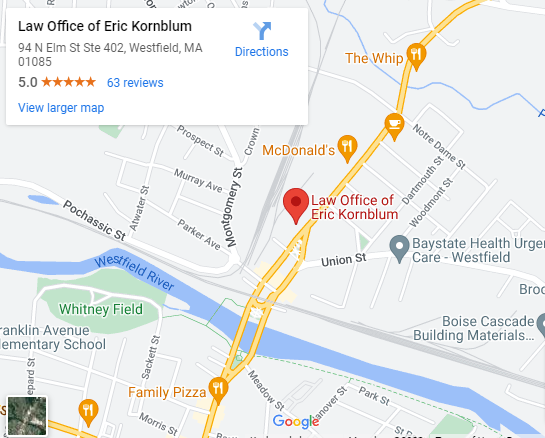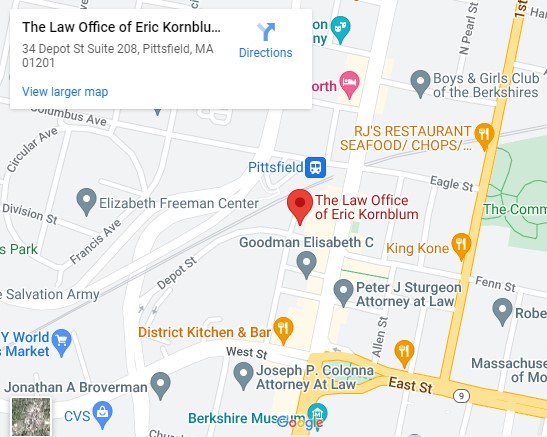Stop Harassment From Creditors With These Three Steps You Can Take Right Now
In today’s financially demanding world, dealing with debt can be overwhelming. That is especially so when creditors resort to harassment tactics. If you are facing relentless calls, threats, or intimidation from creditors in Springfield, MA, seeking relief is crucial. You can attempt to manage the harassment yourself or get help from a creditor harassment attorney.
By understanding your rights and taking steps to assert them, you can manage creditor harassment and protect yourself from abusive debt collection practices. Remember that you are entitled to fair treatment under the law. There are resources available to help you address creditor harassment.
Quick Summary:
- Various forms of creditor harassment, including incessant calls, threats, and visits, can negatively impact your mental well-being and daily life.
- Your rights against creditor harassment are protected under the Fair Debt Collection Practices Act (FDCPA.
- Three important steps to combat creditor harassment directly include understanding your rights, keeping records, and responding firmly.
- Relief from creditor harassment can be obtained through proactive management or legal assistance.
Seeking professional advice and taking the necessary steps will help you manage and resolve the situation. This article will explain three main ways you can end creditor harassment.
What is Creditor Harassment?
Creditor harassment can take various forms, including persistent phone calls, threatening letters, or even intrusive visits to your home or workplace. These actions cause immense stress, disrupt your daily life, and negatively impact your mental well-being.
It is critical to recognize that you have rights protected under the Fair Debt Collection Practices Act (FDCPA), which prohibits creditors from engaging in abusive, unfair, or deceptive practices. The FDCPA is a federal law that offers guidelines that should be strictly followed by credit collection agencies about payment.
How Do I Manage Creditor Harassment?
Managing creditor harassment can be challenging and stressful. But taking proactive steps can help ease the situation. Remember, you have legal rights. There are also resources available to help you navigate creditor harassment.
We give you three options that you can take to help manage harassment from creditors and guide you toward relief:
Managing Creditor Harassment Directly
You can converse with your creditors properly. You can also compromise with them on outdated debts and payments. However, knowing what to say or avoid saying can greatly help your personal negotiations with creditors.
- Know Your Rights: Educate yourself on the Fair Debt Collection Practices Act (FDCPA) to understand your rights as a debtor. Know the limitations imposed on debt collectors. Some examples are restrictions on communication and prohibited harassment tactics.
- Keep Records: Document all communication with creditors, including dates, times, and details of conversations. Save voicemails, letters, and any written communication from debt collectors. This documentation is crucial evidence if you decide to take legal action or report harassment.
- Respond Promptly and Firmly: Communicate with debt collectors promptly and assert your rights and intentions. Request written communication and avoid discussing sensitive information over the phone. Clearly state if you dispute the debt or want them to stop communication.
- Request Debt Validation: Ask for validation of the debt, which requires the creditor to provide evidence of the legitimacy and ownership of the debt. Legitimate debt collectors should be able to supply the necessary documentation.
- Monitor Your Credit Reports: Regularly check your credit reports for inaccuracies or unauthorized accounts. Dispute any discrepancies promptly to ensure the accuracy of your credit history.
- Exploring Consumer Protection Agencies: Report violations to consumer protection agencies like the Consumer Financial Protection Bureau (CFPB). These agencies can investigate and take action against creditors engaging in unlawful practices.
Negotiate With Your Creditors
Negotiating with creditors can be a strategic way to manage your debts and avoid filing for bankruptcy. Here are some steps to help you negotiate with creditors:
- Assess Your Financial Situation: Take a thorough inventory of your debts, income, expenses, and assets. Understand your financial situation and determine your ability to make payments to creditors.
- Rank Your Debts: Identify which debts are the most urgent or have the highest interest rates. Focus on secured debts, such as mortgage or car loans, as they have collateral attached.
- Contact Your Creditors: Reach out to your creditors as soon as possible to discuss your financial difficulties. Many creditors are willing to work with borrowers proactive in addressing their debts.
- Be Honest and Transparent: Be honest about your financial situation with your creditors. Explain any hardships or challenges you are facing that have led to your inability to make payments.
- Propose a Repayment Plan: Develop a realistic repayment plan that you can afford based on your income and expenses. Propose reduced monthly payments, lower interest rates, or extended repayment terms to make the debt more manageable.
- Negotiate with Leverage: Use any leverage you may have, such as the threat of bankruptcy, to negotiate more favorable terms with your creditors. Creditors may be more willing to negotiate if they believe they will receive partial payment rather than nothing through bankruptcy.
- Get Agreements in Writing: Once you reach a negotiation agreement with your creditors, ensure that all terms are documented in writing. That protects both parties and prevents misunderstandings in the future.
- Be Persistent: Negotiating with creditors may need patience and persistence. Be prepared to follow up with creditors, provide more documentation if necessary, and continue negotiating until you reach a mutually acceptable agreement.
Consider Getting Legal Assistance
If harassment persists, you consult with a qualified creditor harassment attorney. An attorney can assess your situation, guide you on your rights, and take legal action if necessary. They can help you with offering and managing different options, such as:
- Filing for Bankruptcy: Consider consulting with a bankruptcy attorney if your debt situation is overwhelming. Bankruptcy can provide legal protection from creditor actions, including harassment, and offer a fresh start.
- Considering a Cease and Desist Letter: Work with a creditor harassment lawyer to send a cease and desist letter to creditors, demanding they stop all communication. This formal request emphasizes your commitment to resolving the issue within the bounds of the law.
Work With Our Creditor Harassment Attorney Today!
Stopping creditor harassment requires a proactive approach and a thorough understanding of your rights as a debtor. With the help of an experienced creditor harassment lawyer, you can effectively combat harassment tactics and work toward a resolution that provides peace of mind.
At the Law Office of Eric Kornblum, we are committed to helping Springfield, MA, residents navigate the complexities of debt collection and achieve financial stability. Our attorneys understand your financial stress and can provide legal assistance to help reclaim control of your finances.
Contact us today to start a conversation and take the first step toward relief from creditor harassment!

 MA bankruptcy lawyer Eric Kornblum graduated from State University of New York, Binghamton in 1989 and received his law degree in 1992 at Western New England College, School of Law. Since opening his own practice, Eric has been dedicated to helping his clients resolve their financial problems both in and out of court.
MA bankruptcy lawyer Eric Kornblum graduated from State University of New York, Binghamton in 1989 and received his law degree in 1992 at Western New England College, School of Law. Since opening his own practice, Eric has been dedicated to helping his clients resolve their financial problems both in and out of court. 
